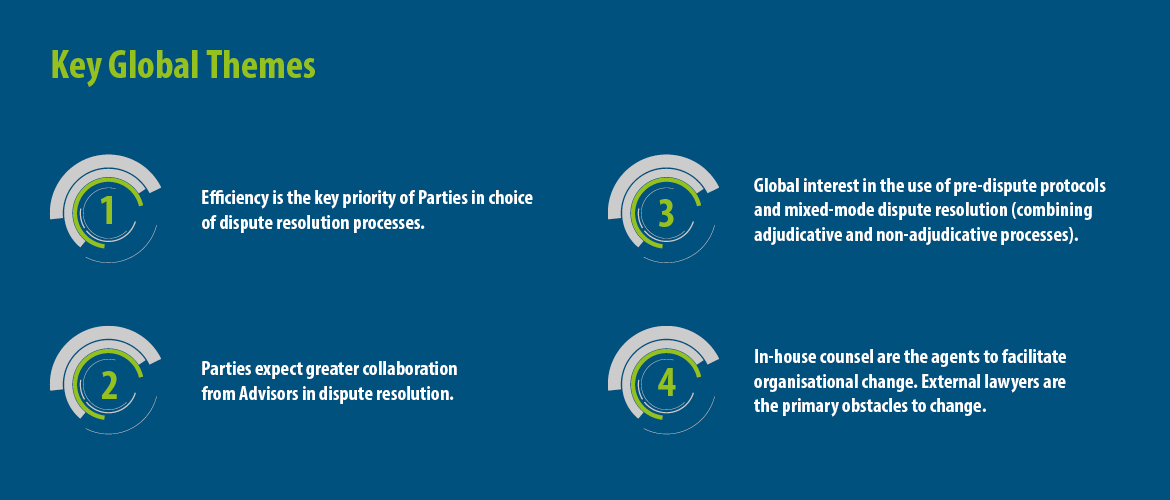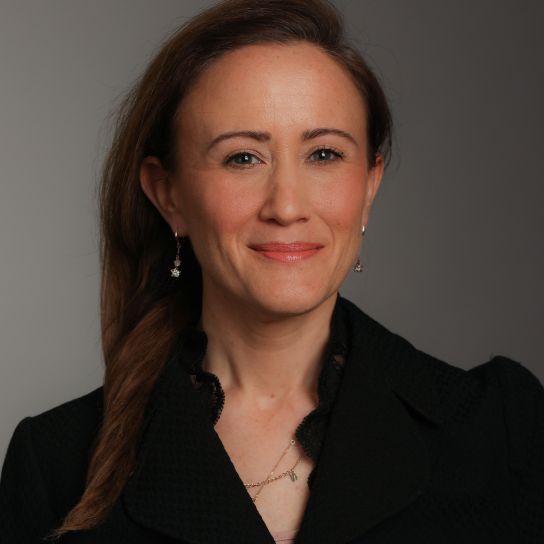This report from our Global Pound Conference series explores the future of disputes drawing findings from an initiative that brought together 4,000 people across 24 countries
Most dispute resolution still has as its frame of reference an adversarial process (litigation or arbitration) based on asserted legal rights with the lawyer fighting their client's corner tenaciously. However, with the lawyers of Generation Y, Millennials and Generation Z growing into positions of influence within corporates and throughout the dispute resolution community, the concept of collaboration and use of technology in a way that would have been unthinkable to the litigators of a generation ago may already be an accessible reality to a community that has grown up on crowd-funded solutions and sharing through social media.
The call for more efficiency and collaboration puts into question whether traditional dispute resolution processes meet the needs of corporate and civil users. Finding a new way to resolve a dispute requires thought and engagement to bring appropriate resolution in acceptable timeframes and at realistic costs. Corporate users may need to communicate their priorities, expectations and underlying interests to lawyers more clearly. In turn, The 21st century lawyer needs to deliver dispute resolution process design, collaboration to secure efficient results, as well as traditional tough representation when called for. Greater emphasis on collaboration between in-house and external lawyers, and between disputing parties, will lead the way for more efficient resolution of commercial disputes.
Redefining dispute resolution
The premise mentioned above, was at the heart of the Global Pound Conference Series – a unique and ambitious initiative to inform how civil and commercial disputes are resolved in the 21st century. The series brought together over 4000 people from across the spectrum of dispute resolution stakeholders, at 28 conferences spanning 24 countries worldwide.
Herbert Smith Freehills has teamed up with PwC, IMI (International Mediation Institute) to identify key insights that emerge from the extensive voting data collected during the series, with a focus on the needs of corporate users of dispute resolution. This ground-breaking report challenges the traditional and fundamental notions of what clients want and how lawyers should represent their clients in a dispute. It identifies four key global themes and four notable regional differences.
Global themes emerging from the voting data reveal:

The GPC data also highlights the important role technology has to play in realising much sought after efficiencies and collaboration. This is not limited to electronic discovery and filing. Dispute management tools and online dispute resolution also have the capacity to change radically the way disputes are resolved over the next decade. Advancement in data analysis enables advisers and legal teams to review and investigate large amounts of data quickly, and assess risk in ever more sophisticated ways. Social tools and online platforms are making it easier for lawyers to work more closely with each other and with their clients.
These early insights show the potential of the GPC Series to inform further studies and discussions across the world. For further information to help shape your own conflict management processes download your copy of the report here.
Key contacts
Legal Notice
The contents of this publication are for reference purposes only and may not be current as at the date of accessing this publication. They do not constitute legal advice and should not be relied upon as such. Specific legal advice about your specific circumstances should always be sought separately before taking any action based on this publication.
© Herbert Smith Freehills 2024



